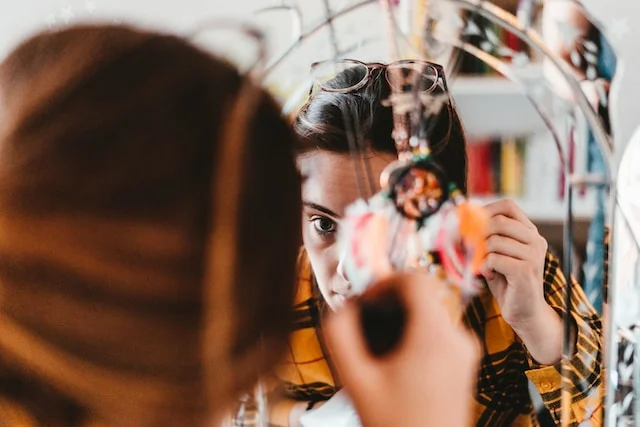In our interpersonal relationships, it is common to experience a wide range of emotions, from happiness and contentment to sadness and a broken heart. However, sometimes these emotions can take excessive control over us, giving rise to a phenomenon known as “emotional dependency”.
Emotional dependency is a behavior pattern in which a person is trapped in destructive and unhealthy relationships, characterized by a desperate need to feel loved, validated, and accepted by another person. It doesn’t have to be a compatible relationship and, in fact, it often isn’t.
This article dives into the complex world of emotional dependency, exploring its causes, manifestations, and consequences. Through deep understanding of this phenomenon, we seek to provide tools and insights for those struggling with it, as well as those seeking to support and help those experiencing it.
By the way, if you want another type of relationship advice for couples, feel free to explore our blog.
What causes emotional dependency?
Emotional dependency can have a variety of causes, and it is often the result of a combination of various factors. Some of the main triggers include:
1. Traumatic past experiences: Experiences of abandonment, emotional neglect, abuse, or toxic relationships in the past can generate insecurity and fear of rejection, which leads to the constant search for approval and affection in subsequent relationships.
2. Low self-esteem: Low self-esteem can make a person feel unworthy or worthy of love and attention. As a result, they constantly seek validation from others in order to feel complete and secure.
3. Insecure attachment patterns: Early experiences of insecure attachment, such as carelessness or emotional inconsistency in parenting, can influence the way we relate to others. People who are insecurely attached may have difficulty setting healthy boundaries and be overly dependent on others for their emotional well-being.
4. Fear of abandonment: Intense fear of abandonment can lead to a dependent relationship. The person fears being alone and will do everything possible to avoid it, even tolerating harmful situations or sacrificing their own identity and needs.

5. Lack of coping skills: Lack of adequate skills to manage stress, anxiety or difficult emotions can make a person emotionally dependent on others as a way to seek comfort and security.
It is important to note that each individual is unique and the causes of emotional dependency may vary. Also, not everyone who experiences these factors will develop it, but they may increase the likelihood of it occurring.
Understanding the underlying causes can be an important first step in addressing and overcoming it.
What are signs of emotional dependency?
There are some signs that you might be stuck in a dependent relationship.
1. Constant need for contact: you constantly seek the company of your partner, showing an excessive need to be in physical contact or maintain constant communication, even in situations where it is unnecessary. Even so, it is very possible to still be feeling lonely in a relationship
2. Obsession with the relationship: The dependent person may be obsessed with their partner. They will spend a great deal of time and energy thinking about the relationship, planning how to please the other person, and anticipating their response.
3. Excessive Sacrifice: They are willing to give up their own needs, desires, and goals to maintain the relationship. They may neglect their own well-being and constantly prioritize the wants and needs of the other person.
You can also read: feeling guilty after breakup
4. Extreme insecurity: Emotional dependency is often accompanied by deep insecurity. The dependent person may have a constant need to be reassured and validated by their partner, constantly seeking affirmations of love and affection to feel safe.
5. Excessive fear of abandonment: Fear of abandonment can lead to behaviors such as excessive control, constant surveillance, or disproportionate jealousy. The dependent person may fear that their partner or loved ones will leave them, which may create a need to constantly control and monitor their whereabouts and activities.
6. Difficulty making decisions: Dependent people may have difficulty making decisions for themselves. They are highly dependent on the opinion and approval of others, especially their partner, before making any decision, even on personal matters.
7. Low tolerance for loneliness: The dependent person may experience deep discomfort or anxiety when alone. They may have difficulty enjoying their own company and feel lost or empty without the other person’s constant presence.
These behaviors are just a few examples of possible signs of emotional dependency. It should be noted that each individual is unique and may display different combinations of behaviors depending on their personal situation.

How do you deal with emotional dependency?
Dealing with emotional dependency can be a challenging process, but it is possible to overcome it and develop healthier, more balanced relationships. Here are some strategies that can help you on this path:
1. Become aware of emotional dependency: The first step in dealing with emotional dependency is to acknowledge and accept that it exists. Take some time to reflect on your behavior patterns and the relationships in your life. Identify dependent behaviors and how they affect you and your relationships.
2. Work on your self-esteem: Developing a solid self-esteem is essential to overcome a dependent relationship. Cultivate self-love, recognize your qualities and value your achievements. Do activities that make you feel good about yourself and work on your personal growth.
3. Set healthy boundaries: Learn to set clear boundaries and respect your own needs and desires. Learn to say “no” when necessary and to maintain balance in your relationships. Communicate your limits assertively and seek support from friends, family or professionals if you find it difficult to do so.
You can also read: how to know if your relationship is toxic
4. Promote your emotional autonomy: Work on developing your own identity and emotional autonomy. Learn to trust your own decisions and emotions, without constantly depending on external validation. Look for activities that you are passionate about and that make you happy, regardless of the approval of others.
5. Seek professional support: Consider seeking the help of a therapist or counselor specializing in relationships and emotional dependency. Professional support can provide you with personalized tools and strategies to address the specific challenges you face and help you in your recovery process.
6. Practice self-care: Spend time and energy taking care of yourself. Prioritize your physical, emotional and mental well-being. Find activities that relax you and help you manage stress. Establish healthy routines, get enough sleep, eat well, and maintain balance in your life.
7. Expand your support network: Cultivate healthy relationships and support your network of friends and family. Look for people who provide you with positive support and help you strengthen your emotional independence.
Remember that overcoming a dependent relationship is a gradual process and requires time, patience, and a commitment to yourself. Be kind to yourself during this process, and celebrate each step toward building healthier, more fulfilling relationships.

Shag: the emotional independence you are looking for
A no-obligation dating site, like Shag, can have certain beneficial aspects in the process of dealing with emotional dependency. However, it is important to note that each individual’s approach and expectations may vary, and what works for one person may not work for another.
Here are some possible ways a non-binding dating site like Shag could be helpful in the process of overcoming emotional dependency:
1. Personal exploration
A non-binding dating site can give you the opportunity to explore different types of relationships and meet different people. This can help you broaden your perspectives and experiences, discover your own likes and dislikes, and develop a greater understanding of yourself and what you really want in a relationship.
2. Focus on fun and enjoyment
When looking for non-binding hookups on a dating site like Shag, you are more likely to focus on enjoying the present and the company of other people without developing an intense emotional dependency. This can help you break free of the expectations and pressures associated with long-term relationships, and experience a sense of freedom and fun.
3. Developing emotional autonomy
By exploring different relationships and making connections without commitment, you can learn to trust yourself and your own emotional decisions. You can develop greater emotional autonomy by learning to manage your own emotions and needs without constantly depending on the validation or attention of others.
4. Increased self-esteem
By experiencing positive interactions and receiving attention and affection from other people on a dating site, you can improve your self-esteem and self-confidence. This can help you develop a healthier and more positive image of yourself, which is important in overcoming a dependent relationship.
However, it is essential to keep in mind that non-binding dating sites are not a definitive solution to address emotional dependency.
They can be helpful in certain ways, but it’s important to keep working on developing healthy emotional autonomy, setting personal boundaries, and seeking additional support if needed.




